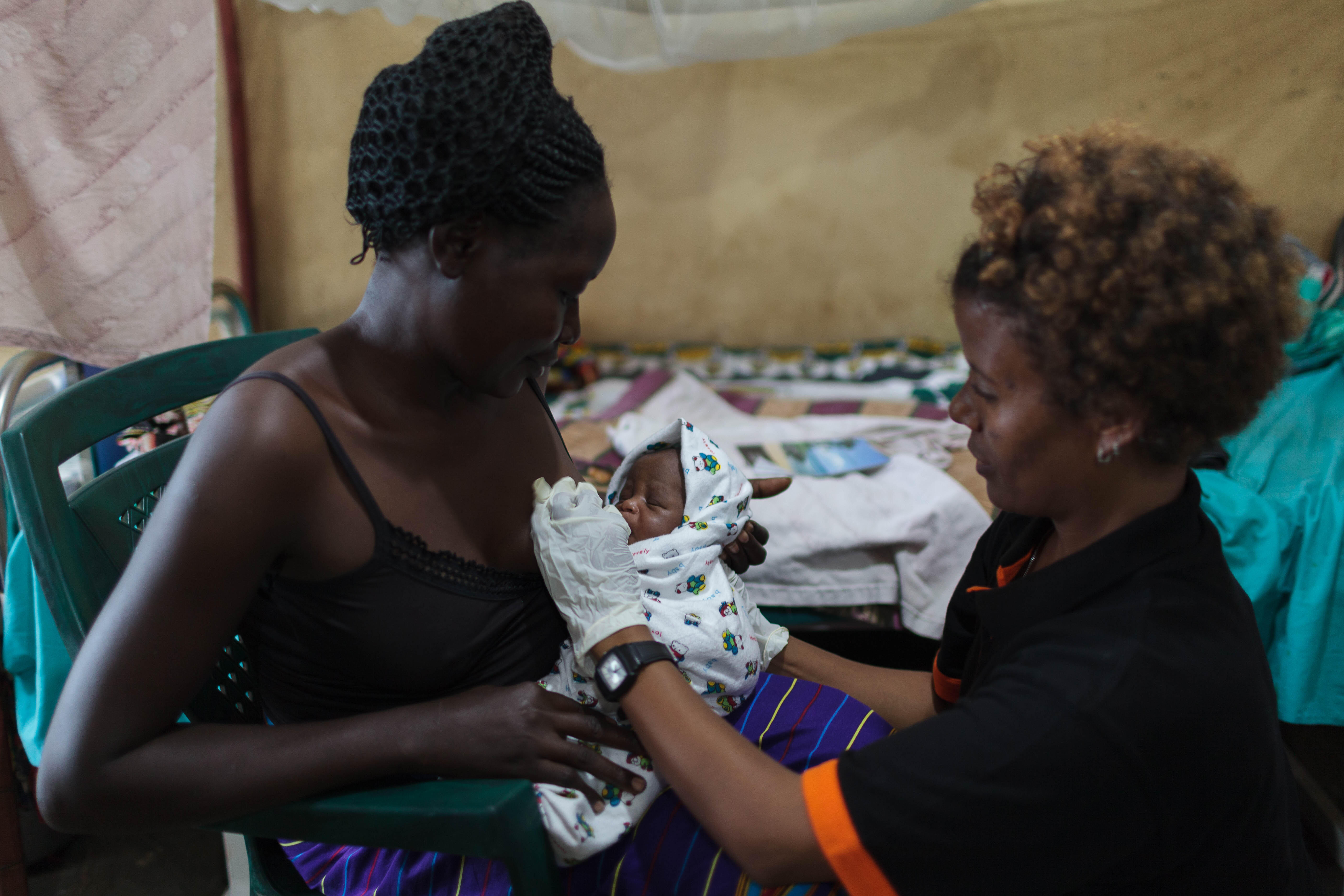Juba, South Sudan – With the Ministry of Health announcing the first confirmed case of the novel coronavirus (COVID-19) in South Sudan, the United Nations Population Fund is redoubling its efforts to ensure that no woman dies giving birth and that each woman and girl is protected from violence at home and in her community. As part of the efforts, UNFPA has put together a robust response plan to fulfill its mandate at the onset of the crisis.
The plan includes the recruitment and deployment of more nurses and midwives to support the health system response to COVID-19.
In a statement for World Health Day, UNFPA Executive Director Dr. Natalia Kanem said midwives play a critical role in responding to public health emergencies such as COVID-19. “They are essential to the strong, resilient health systems we need to survive the coronavirus. It is imperative not to jeopardize essential sexual and reproductive health services by diverting midwives to serve as emergency personnel.”
UNFPA in South Sudan will complement the overall UN response plan and will be focused on addressing the special needs of women and girls, specifically:
- Continued access to safe deliveries, antenatal and neonatal health case by ensuring that maternity units are segregated from identified COVID-19 cases;
- Protection of health workers, particularly midwives, nurses, obstetricians and anesthesiologists by providing them with personal protective equipment;
- Recruitment of additional nurses and midwives to complement the existing number of frontline health workers;
- Procurement and distribution of reproductive health supplies, including the emergency reproductive health kits and supplies for menstrual health management;
- Ensuring that the response to COVID-19 does not perpetuate harmful gender norms, discriminatory practices and inequalities, including within the quarantine experience;
- Engaging partners to understand the intersections of gender and the pandemic, as well as the increased risk of gender-based violence and how to safely, ethically and effectively address the issue;
- Ensuring that vulnerable populations such as persons with disabilities, people living with HIV and adolescents are given special attention;
- Continuing the life-saving care and support at all one-stop centres for GBV survivors across the country, specifically clinical management of rape and psycho-social support; and
- Engaging the youth to support risk communication and prevention in the communities.
UNFPA Country Representative Dr. Mary Otieno said that during emergencies, the special needs of women and girls are often overlooked in the rush to provide assistance. This happens despite the fact that the burden to care for others fall on women’s shoulders who are usually already vulnerable, further putting them at risk.
In South Sudan, the threat of COVID-19 is much more complex, given the weak health and social protection systems that contributes to the high maternal mortality ratio and prevalence of gender-based violence.
“South Sudan is just transitioning from the years of conflict into a period of peace and reconciliation with the formation of a united government. There is still a large group of vulnerable population who need assistance,” Dr. Otieno said. “Supporting people affected by humanitarian crises is not only the right thing to do – it is the smart thing to do – to save lives and ensure that the most vulnerable groups are not left behind.”
“Targeted support to women is one of the best ways to ensure the health, security and well-being of families and entire communities,” she said.
UNFPA is an active member of the humanitarian coordination mechanisms in South Sudan including the Humanitarian Country Team and the Inter-Cluster Working Group among others. It leads the GBV Sub-cluster and the Reproductive Health working group under the health cluster. Building on these existing structures UNFPA can rapidly scale up COVID-19 preparedness and response activities directly and indirectly.
For more information, contact:
Arlene Alano – alano@unfpa.org
Juma Delu – delu@unfpa.org



